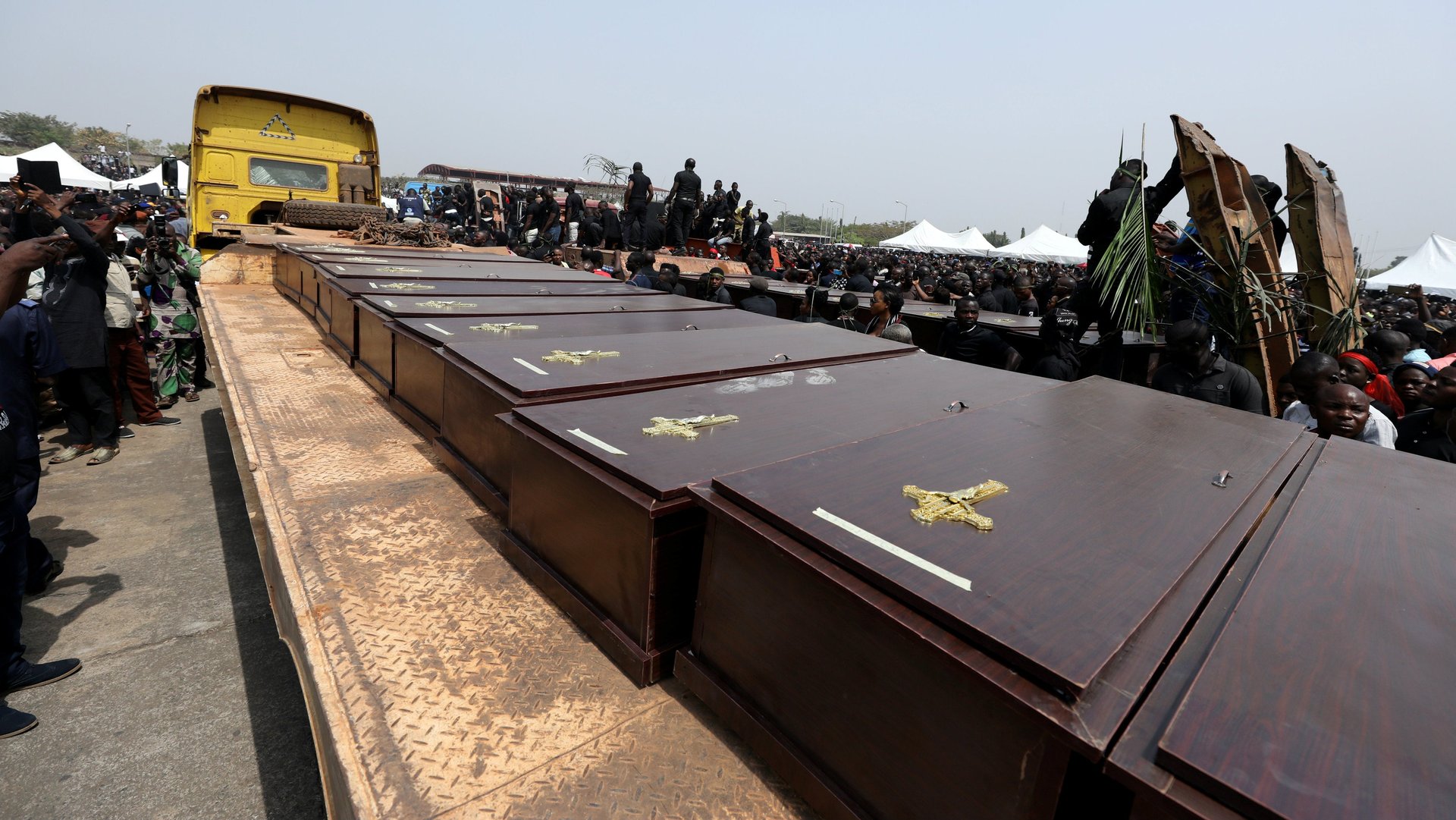Nigerian Christians are pawns in US right-wing media’s response to the New Zealand attack
The repercussions of the deadly attack on Muslims in a mosque by a self-proclaimed white supremacist in Christchurch, New Zealand are reaching Nigeria.


The repercussions of the deadly attack on Muslims in a mosque by a self-proclaimed white supremacist in Christchurch, New Zealand are reaching Nigeria.
Seemingly in response to global media coverage of the attack and the widening discussions of white supremacist attacks and movements, right-wing media platforms in the United States are increasingly referencing the killings of Christians in Nigerians.
Over the past week, there has been a sharp uptick in reports of killings in villages mostly occupied by Christians in Nigeria’s largely Muslim-dominated north. Among several, Christian Militant notes “International news is nearly silent as Muslim militants continue killing Christians in Nigeria” while Breitbart News (which has published three reports on the killings in the last four days alone) reports “media silence surrounds Muslim massacre of Christians.”
To be clear, the reports on the spate of killings in the region are true (even though it’s typically difficult to verify death tolls in Nigeria). The conflicts have been going on intermittently for nearly three years and occasionally surface in international media. But attributing the attacks solely to religious persecution “is a misunderstanding of the actual problem,” says Cheta Nwanze, head researcher at SBM Intel, a Lagos-based intelligence firm that has analyzed conflict in northern Nigeria over the past three years.
“The pastoral conflict is, in reality, primarily a resource conflict [over land] but because it has gone on for so long it is beginning to metastasize and is taking the coloration of a religious and ethnic conflict where it originally was not,” he says. Amnesty International, in a report last December, also noted the root of the attacks lie in communal and pastoral clashes.
As Quartz Africa has previously reported, these conflicts had overtaken Boko Haram as Nigeria’s biggest internal security problem as of two years ago.
“It appears to be classic “whataboutism”— an age-old Russian propaganda technique that the American right has warmly embraced,” says Matthew Page, associate fellow, Africa Programme, Chatham House. It’s easy to reach that conclusion as right-leaning platforms mainly appear to be reporting the attacks in Nigeria only to point out the lack of coverage in global media in comparison to the New Zealand attack.
Indeed, Breitbart reports that its Rome bureau chief Thomas Williams “describes ‘mainstream media’s’ response to the massacring of Nigerian Christians as ‘silence’ in comparison to its approach towards last Friday’s mass murder of Muslims in Christchurch, New Zealand.”
“Presumably they are trying to meet a demand signal from their readership for countervailing narratives that distract from the uptick in white nationalism worldwide that has occurred over the course of Trump’s tenure in office,” Page says.
The reports will achieve one thing as they bring increased awareness to the long-running internal security problems which Nigeria’s political leaders have handled poorly to date. But the increased attention is not guaranteed to deliver a change of fortunes in the region.
Indeed, during Nigeria’s president Buhari’s state visit to the US last May, Donald Trump claimed the US will be “working” on the “very serious problem” of murdered Christians in Nigeria. So far though, there’s very little evidence to suggest his statement was followed with action or that it was anything more than a populist play to rally his vast evangelical base.
Sign up to the Quartz Africa Weekly Brief here for news and analysis on African business, tech and innovation in your inbox